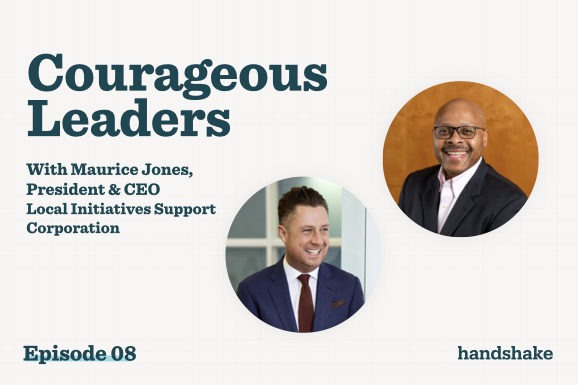Maurice Jones, President and CEO of LISC, exemplifies what it means to be an Impact Executive, leading with both courage and vulnerability to help achieve lasting economic mobility and social justice beyond the summer of 2020.
For Jones, courage is essential in unlocking virtues in everyday leadership. Stakeholders are demanding leaders who are not only confident but are transparent and trustworthy.
“We are going to need leaders to have the courage to fight this fight even when it’s not the trend or the popular fight of the day.”
The Local Initiatives Support Corporation (LISC) is one of the country’s largest organizations supporting projects to revitalize communities and catalyze economic opportunity for residents. In addition to helping small businesses survive and continue to build the communities they are a part of, LISC is committed to helping local partners navigate and provide relief, assistance, and the necessary products and services demanded during these challenging times.
As Jones says, partners are “stepping up and recognizing we are in the middle of a pandemic, a recession, and a racial reckoning, and they are providing resources that we can use to fight our fights.”
In the last six months, LISC has received tremendous support from the private sector. This summer, LISC has seen a $55 million grant from home improvement retailer Lowe’s to boost entrepreneurs of color and rural businesses, as well as a $25 million investment from Netflix to support Black-owned financial institutions.
Jones believes we need to see more of the kind of leadership that Marvin Ellison, President and CEO, of Lowe’s demonstrates. According to Jones, three main lessons can be learned from Ellison’s leadership.
- Speed is necessary – business leaders need more a sense of urgency
- Intentionality keeps us driven and focused
- Real insistence on partnerships ensures performance
Both Jones and LISC believe we must set up structures that continue to extend the dialogue around racial justice and recommit to the work that helps close existing gaps based on racism in our wealth and health systems.
Creating sustained impact is crucial. We must identify the structures, tools, and vehicles needed to fight this fight with intentionality for generations to come.
You can watch the full discussion here:
